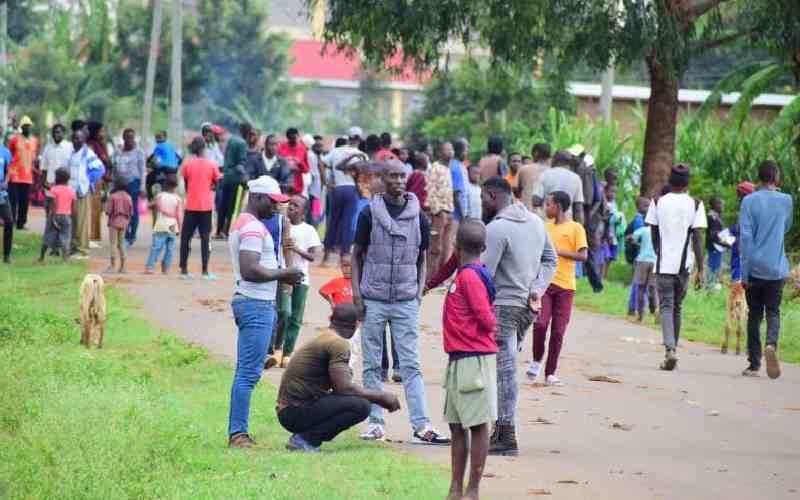By FRANCIS ONTOMWA
Mumias,Kenya:Mumias Sugar Company (MSC) has pieced aside Sh10 million for construction of classrooms in 11 primary and secondary schools within its sugar zones. The benefitting schools were carefully selected based on the degree of need.
Managing Director Peter Kebati said the ambitious project was geared at improving academic standards in the sugar belt region as well as encourage farmers to educate children.
He was speaking during at Igara Secondary School in Busia County, where he commissioned the project. “We are passionate about education, and as way of rewarding our farmers, we want to encourage them to educate their children,” noted Mr Kebati.
Assessment exercise
He said a more elaborate support programme will be rolled out during the next financial year. It will put into consideration factors gathered during a need assessment exercise undertaken by the Company recently. The programme under the Company’s Corporate Social Investment wing, Mumias Sugar Foundation (MSF) will see improvement of infrastructure and learning environment in the selected schools.
The schools include St Elizabeth Opeduru Primary School, Madende Primary School and Luliba Primary School in Busia South. Other schools are St John Mukhweya Secondary School in Matungu district, Eshitari Secondary School in Butere district, Mumias Township Primary School in Mumias district and Mulukoba Primary School of Bumula, Bungoma County.
Also, St Marys Mukhuma Secondary School in Bungoma County, Esumeiya Primary School in East Wanga and Eshimuli Early Childhood Development Centre are among educational institutions lined up for support under this programme. MSC Director of Marketing and Corporate Affairs Pamela Lutta said the company was committed high realisation of better educational standards. This, she observed form an integral part of the societal development. “There is no better way for us to appreciate our farmers than reward them something they can remember and be proud of like education,” she observed. Contractors who will undertake the projects have been encouraged to source for labour and building material locally.
Community participation
This will enable residents be part of the project and not to play a mere observance. It is also hoped that the involvement of the community will minimise duplication.
Mr Kebati noted that key issues underpinning quality access to education in the country was inadequate land to put up structures. “Space is dictated by available infrastructure to accommodate learners. In all the selected schools, we have established that the need for more classrooms to accommodate learners was quite urgent,” he observed.
To ensure active participation of the community in the management of the projects, and working in line with the key guiding principles, MSF has embarked on empowering the communities within each zone to form coordinating committees that will take lead to spearhead the selection, implementation and general management of the projects.
“The involvement of the community through these committees will ensure that duplication of efforts is minimised,” affirmed Kebati. “The support will mainly focus on health, education, environment, water and sanitation. Other areas of priority will include , disaster management and enterprise development targeting particularly women and youth.”
Stay informed. Subscribe to our newsletter
 The Standard Group Plc is a
multi-media organization with investments in media platforms spanning newspaper
print operations, television, radio broadcasting, digital and online services. The
Standard Group is recognized as a leading multi-media house in Kenya with a key
influence in matters of national and international interest.
The Standard Group Plc is a
multi-media organization with investments in media platforms spanning newspaper
print operations, television, radio broadcasting, digital and online services. The
Standard Group is recognized as a leading multi-media house in Kenya with a key
influence in matters of national and international interest.
 The Standard Group Plc is a
multi-media organization with investments in media platforms spanning newspaper
print operations, television, radio broadcasting, digital and online services. The
Standard Group is recognized as a leading multi-media house in Kenya with a key
influence in matters of national and international interest.
The Standard Group Plc is a
multi-media organization with investments in media platforms spanning newspaper
print operations, television, radio broadcasting, digital and online services. The
Standard Group is recognized as a leading multi-media house in Kenya with a key
influence in matters of national and international interest.







